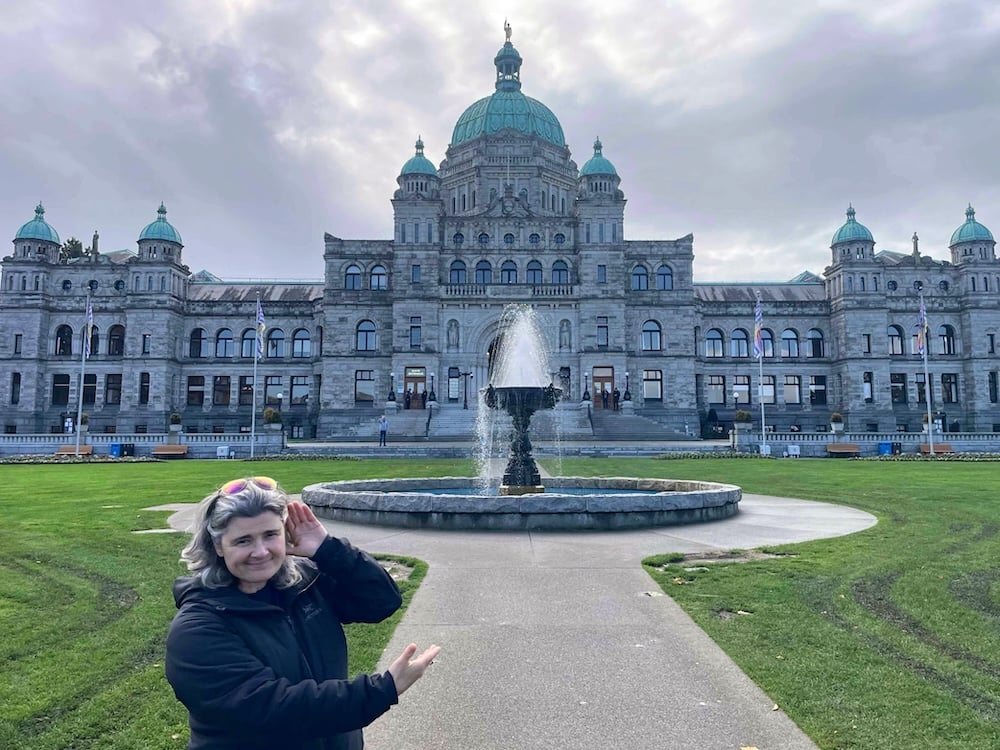Lifestyle
Deaf Children’s Society of BC to Close After 46 Years of Service

The Deaf Children’s Society of British Columbia (DCS) has announced its closure after nearly half a century of providing vital services to children who are deaf, hard of hearing, or deafblind. This decision comes in light of the provincial government’s recent withdrawal from a proposed redesign of language acquisition programs, significantly impacting the Deaf community in the region.
Sarah-Anne Hrycenko, a Deaf professional who benefited from DCS’s support in her early years, expressed deep concern over the state’s decision. She noted, “It’s not just an organization closing; it’s the fading of an entire Deaf ecosystem that once nurtured language, identity and leadership in the B.C. Deaf community.” The minutes from an extraordinary general meeting held on October 29, 2023, reveal that the board faced “years of financial strain and systemic challenges,” ultimately leading to the difficult decision to shut down operations.
Staff layoffs will commence at the end of November, with the organization’s office lease set to expire on December 31. Community members have voiced their sorrow and frustration over the closure, but many understand the fiscal realities facing the organization.
For the past decade, DCS has operated as a subcontractor to the BC Family Hearing Resource Society, grappling with annual financial deficits. The meeting minutes indicated that despite efforts to secure direct funding or increase allocations, the financial model proved unsustainable. “Efforts to increase funding through donations, grants, and to decrease spending have all proved insufficient to keep DCS in a financially viable position,” the minutes noted.
The provincial Ministry of Children and Family Development had previously raised hopes within the community when it released a call for responses aimed at reforming early intervention services last May. The proposed reforms included prioritizing American Sign Language (ASL) and ensuring families would not have to choose between languages. This initiative aimed to establish bilingual and bicultural standards and enhance accountability in reducing language deprivation among children.
However, the province’s recent decision to cancel the call for responses and extend the current contract with the BC Family Hearing Resource Society until March 2027 has left many in the Deaf community disillusioned. Hrycenko described the cancellation as an outrage, stating, “It is a decision that will shape the future of every Deaf child in B.C.”
She emphasized the importance of language access, declaring, “Language access is not a privilege — it’s a human right.” Statistics indicate that around 100 children are born with hearing loss in B.C. each year, resulting in approximately 500 children under five who require these essential services.
Hrycenko is part of a working group from the BC Association of the Deaf that is seeking a meeting with Premier David Eby and Children and Family Development Minister Jodie Wickens. In their communication, the group asserted the need for meaningful support and empowerment for the Deaf community in shaping future programs and policies.
Wickens expressed her willingness to meet with the group, emphasizing the importance of feedback from families. She stated, “These services are vitally important… it’s important for us to engage.” Despite the cancellation of the call for responses, she assured that current programs would continue while consultations on future actions take place.
Critics argue that the government’s call for additional consultation is frustrating, particularly given the extensive work that had already been conducted to develop the original call for responses. Nigel Howard, a sign language interpreter and adjunct professor at the University of British Columbia, highlighted concerns that further consultation could dilute the meaningful work achieved thus far.
Additionally, Joanna Cannon, a special education program coordinator at the University of British Columbia, pointed out that the current system fails to adequately address the needs of children entering kindergarten without a full language. She noted, “We still have children in B.C. who are not entering kindergarten with a full language… that’s not acceptable, for any children to enter kindergarten without a full language.”
The delay in implementing a supportive framework for Deaf children, as well as the lack of transparency in the cancellation of the call for responses, raises significant concerns about the future of language acquisition for children who are deaf or hard of hearing in British Columbia.
The ramifications of the government’s decisions will be closely monitored, as community members advocate for greater inclusion and representation in shaping the services that directly affect their lives.
As this situation unfolds, the Deaf community remains hopeful for renewed dialogue and actionable support from provincial leaders to safeguard the future of Deaf children in British Columbia.
-

 Science3 months ago
Science3 months agoToyoake City Proposes Daily Two-Hour Smartphone Use Limit
-

 Top Stories3 months ago
Top Stories3 months agoPedestrian Fatally Injured in Esquimalt Collision on August 14
-

 Health3 months ago
Health3 months agoB.C. Review Reveals Urgent Need for Rare-Disease Drug Reforms
-

 Technology3 months ago
Technology3 months agoDark Adventure Game “Bye Sweet Carole” Set for October Release
-

 World3 months ago
World3 months agoJimmy Lai’s Defense Challenges Charges Under National Security Law
-

 Lifestyle3 months ago
Lifestyle3 months agoVictoria’s Pop-Up Shop Shines Light on B.C.’s Wolf Cull
-

 Technology3 months ago
Technology3 months agoKonami Revives Iconic Metal Gear Solid Delta Ahead of Release
-

 Technology3 months ago
Technology3 months agoApple Expands Self-Service Repair Program to Canada
-

 Technology3 months ago
Technology3 months agoSnapmaker U1 Color 3D Printer Redefines Speed and Sustainability
-

 Technology3 months ago
Technology3 months agoAION Folding Knife: Redefining EDC Design with Premium Materials
-

 Business3 months ago
Business3 months agoGordon Murray Automotive Unveils S1 LM and Le Mans GTR at Monterey
-

 Technology3 months ago
Technology3 months agoSolve Today’s Wordle Challenge: Hints and Answer for August 19









